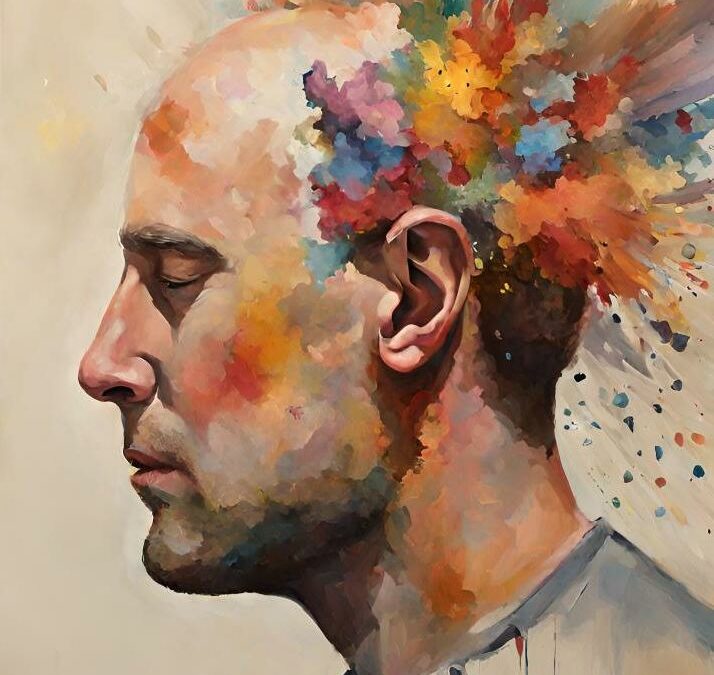One of the advantages of teaching young actors as well as adults is that it forces me to find clear, concise language for complicated acting ideas.
In the pandemic I relocated from Vancouver to the Gulf Islands to support my son, and I’m now on Saltspring Island. This past week while teaching a group of complete beginners, I was trying to explain to a nine year old girl how to help make her scene believable, and I found myself saying, “Control your imagination, not your face.”
And I thought, “Aha! That is the language I need for this idea.” It’s simple, clear, and expresses exactly the adjustment that I give all the time to actors of all ages.
Here’s what I see happen with actors all the time: there’s a result the actor wants, they try to achieve that result in a mechanical way by controlling their facial expression, and the outcome is acting that feels forced, false and stiff.
In this case the girl was very excited to be on camera, smiling uncontrollably, and trying to tell a story where she was scared. Most of her attention was on struggling to suppress a smile and knit her eyebrows into something resembling fear or worry. It was comical, and she was having a great time, but the story was definitely not coming through.
Your Face
Here’s the thing: the human face is very complicated. There are more than two dozen muscles on each side of your face, plus soft tissue, and layers of fascia. Most of the expressive responses of those muscles are unconscious reactions, and many of them are microexpressions — brief, subtle, involuntary movements of facial muscles that last for less than half a second.
So: do you really think that you can consciously control more than forty tiny muscles, in less-than-half-a-second increments, in ways that come across on camera as completely believable?
Probably not. But most actors will try anyway, because it can seem quicker/simpler/easier to try and create the “result” in a mechanical way.
Alive + Interesting
But let’s accept for the moment that to do the most interesting, alive, honest acting that you’re capable of, you can’t approach it in a mechanical way. Even if you are *very* skilled at mechanical acting (and some actors really are), if you can access the work from the inside instead of from the outside you’ll get more depth, and as a result your work will be more compelling to watch. Even if you’re playing a very repressed character, or one with a limited range of expression, I think it’s the tiny, uncontrolled, barely perceptible microexpressions that make a character like that interesting to watch.
In genuine human emotional reactions, your face is adjusting moment by moment to everything that you’re seeing, hearing, thinking and doing. It’s an incredible system, and I want the actors that I work with to be curious about how to let go of “control” and activate their imaginations.
So how do you activate your imagination, and get your face to do “what it’s supposed to do” without your conscious control?
In this case it was enough to say to the young actor, “Control your imagination, not your face. Pay attention to the scary thing in your hands, what does it look like, feel like, sound like. If you can picture that, your face will do just what it’s supposed to do.” And this time it worked for her.
What Works For You
Figuring out what works for you is an ongoing process, and I think it requires being curious, and paying attention to your own inner life and what tools activate it most strongly in ways that support the story you’re trying to tell. Is it something a teacher or a coach says to you? Is it an image that you bring to mind? A sensation? A memory? A choice about the story or the character that has emotional charge for you? You may find one set of tools that works for you every time, or you may need to experiment with the tools you have each time to see what works best. You may have scenes where it “just works” and you don’t have to think about it, and you will also likely have scenes where nothing seems to work and you have to get creative and try new things.
I want my clients and students to have access to all of the tools they can, and to practice engaging deeply with them, while remembering that it’s an organic, creative, ever-changing process. We’re working with our imaginations and internal lives, and those never hold still for long. I think that’s one of the things that makes it so fascinating and engaging for me, and why I can still get so excited to explore with an actor, even after twenty-two years of teaching and private coaching.
—
Michael Bean
Owner+Head Coach, Biz Studio
